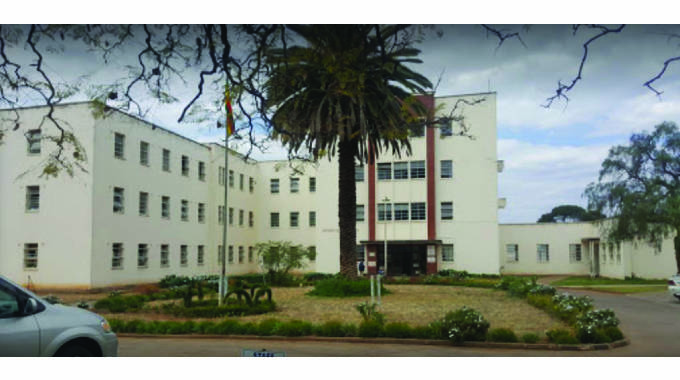The Chronicle

Nqobile Tshili, Chronicle Reporter
MPILO Central Hospital and United Bulawayo Hospitals (UBH) are set to receive medical equipment following the signing of a memorandum of understanding between the country and Iran.
The MoU paved the way for a visit by Iranian doctors to the country.
The doctors left Bulawayo yesterday after arriving in the city last week on Thursday.
The doctors have pledged to equip Mpilo and UBH and facilitate knowledge transfer between medical experts from the two nations after reaching an agreement with the Ministry of Health and Child Care.
While in the city, the doctors were operating from Mpilo and UBH where they had hands-on experience on the medical services offered by the country’s two hospitals.
 United Bulawayo Hospitals (UBH)
United Bulawayo Hospitals (UBH)The team consisted of 11 specialist doctors and a reporter.
Their visit is a culmination of an MoU signed between Government and the Islamic Republic of Iran.
The doctors and their Zimbabwean counterparts held a meeting at UBH to take stock of what was achieved and observed during a week-long visit to Bulawayo hospitals.
The Iranian doctors team leader Dr Seyed Nayer Emadi said the visit to Zimbabwe was an eye opener as it created several areas of cooperation.
“Our visit from Thursday up to now was a unique experience, we will never forget it in our lives. I’m sure the outcome cooperation will be of benefit to your people, doctors from the two nations and the two countries Iran and Zimbabwe.
“We would like to invite Zimbabwean doctors especially those whom we met in Bulawayo to our country Iran and the capital city Tehran to see our wonderful country and we will receive you warmly.
“The visit will allow you to have an experience on how we do our work,” said Dr Emadi.
He said they observed a lot of gaps within the country’s hospitals and will be bringing in new equipment during their next visit in the next three months.
“We are expecting to bring some medical equipment and tools to be added particularly to the surgeon section for urologists, orthopedic so that you can serve your people much better than the situation you have.
“Yesterday, I saw some of the patients with skin problems and some of the problems can be treated easily but unfortunately that equipment is not here but we are producing it in our country.
“I’m sure in our next travelling and from the permission that we have received from the Ministry of Health and Child Care, we can bring it and donate to hospitals,” he said.
Dr Emadi commended the hospitality of Bulawayo residents saying the doctors now consider the city their second home.
Dr Emadi expressed concern over postponement of some surgical treatment saying delays in attending to patients may be catastrophic.
He said they were charmed by how doctors in the country take their time to understand the patient personally in the process of diagnosis.
UBH acting chief executive officer Dr Harrison Rambanepasi said there is a need for more cooperation in the research areas.
“This is one area in which we are still behind. If there is potential for us to collaborate between Iranian doctors and local doctors that will also help us. Most of our specialists are young and are still learning. And this interaction has been very helpful to them.
There are opportunities for our students to go to Iranian universities and get attached there. It will be a great opportunity for them as well,” said Dr Rambanepasi.
He said Government has started addressing some of the challenges facing hospitals.
“We do acknowledge some of the challenges that you highlighted but let me inform you that our Government is working to resolve some of the challenges. Challenges to do with cancellation of lease, challenges to do with longer waiting periods before a patient is operated,” he said.
Dr Rambanepasi said one of the strategies is the launch of the National Surgical, Obstetric and Anesthesia Strategy whose aim is to put more focus on surgical related diseases.
“This strategy says we have been looking at communicable diseases like malaria, TB, HIV, diarrhoeal diseases and all. We have not really focused on the surgical burden of disease but through this strategy that was launched three weeks ago, the Government is now going to put more emphasis on the surgical diseases.
“We look forward to the impact of that strategy and probably it will ensure our theatres are looked into more closely and cancellation of lease and drugs that are required to attend to patients will be made more available,” said Dr Rambanepasi.
Mpilo Central Hospital acting clinical director Dr Francis Chiwora commended the Iranian doctors for spending time at the country’s referral hospitals.
“We were very happy that our visitors were able to interact with us, see patients and discuss issues with our local specialists and impart knowledge.
“Our visitors are more knowledgeable in areas where we might not be as knowledgeable. This was a very good exchange. We got a lot of valuable information from them,” said Dr Chiwora.
He said he would have preferred the Iranian doctors to stay longer in the country. — @nqotshili
Article Source: The Chronicle
